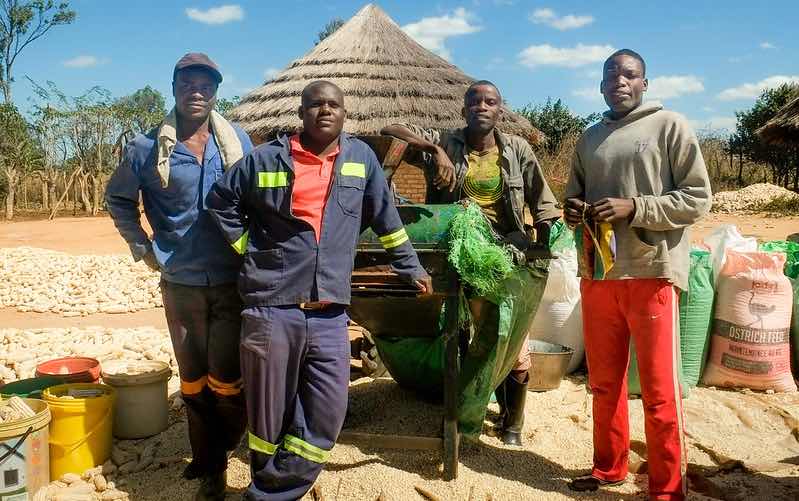Encouraging agripreneurship—entrepreneurial activity in agriculture—is crucial to addressing unemployment and underemployment among young people in developing and emerging economies around the world. Currently more than 223 million people fall into those categories, and they need sustained and targeted support. In a new brief, produced jointly by the Food and Agriculture Organization of the United Nations (FAO) Investment Centre and IFPRI, we outline ways policymakers and investors can foster youth entrepreneurs and tap into their vast potential.
Young people aged 15-24 make up 16% of the world’s population, and in Africa south of the Sahara, half the population is under 25. Agriculture remains the single most important source of income and employment for people throughout the developing world. But many young people view the sector as devoid of prospects, lacking in opportunities to make a decent living and provide for their families, and with limited potential as a worthwhile career choice. Promoting and sustaining agripreneurship offers an opportunity to change those perceptions.
What is youth agripreneurship? We define it as the process of young people setting up businesses involving agriculture, as well as the habits, skills, abilities, knowledge, and social and personal attributes that they need to conduct agricultural activities productively and sustainably. With the right tools, skills, and opportunities, young agripreneurs can significantly improve their livelihoods and incomes. Moreover, they can spark action by others, expanding economic opportunities within their communities and beyond.
Innocent Twizeyimana is one example. After obtaining his degree in veterinary sciences in Rwanda in 2016, he sold inputs. He was doing well but wanted to do more. After interning with the One Acre Fund (OAF), an NGO, he founded Expanders, Ltd., a social enterprise committed to improving the livelihoods of smallholders. In 2019, Expanders obtained a foundation grant to establish a rabbit production center in the Rutsiro District, Rwanda. In 2020, Expanders recruited its first intern. “My managers at OAF challenged my work and that way I learned a lot. Today in my current job, I ask myself and my employees those same questions!” Twizeyimana said.
Overcoming barriers and unlocking potential
Entrepreneurship can put young men and women in control of their future success. But successful youth agripreneurship depends on building more inclusive economic systems and business-friendly environments. Inadequate access to equipment, finance, and encouragement can prevent the transformation of innovative ideas into tangible solutions. These constraints also fuel unemployment and a loss of economic potential.
Engaging young people meaningfully in agripreneurship requires sustained policies and programs to provide training, tools, and resources to young men and women in marginalized rural communities. This is not a straightforward task; compared to established entrepreneurs, young business owners often have different sets of skills and require different support and resources.
Developing agripreneurship is both an art and a science—incorporating the “art” of creativity, risk-taking, and determination, and the “science” of planning, accounting, and marketing. Both skillsets are vital to success. Nurturing youth agripreneurship also means establishing the abilities, knowledge, and attributes that young people need to conduct agricultural ventures productively and sustainably.
Education and training initiatives can improve capabilities, business performance, and livelihoods. In parallel, schemes such as mentoring, internships, apprenticeships, and coaching can foster creative drive and talent. Programs aimed at improving access to financial services, markets, digital tools, and information and communications technologies (ICT) can boost nascent enterprises.
Enhancing prospects for future generations
Work should also be done to shift young peoples’ negative perceptions of agriculture, changing the stereotypical view of it as subsistence farming to a more forward-looking picture of modern, competitive, sustainable, and equitable businesses that can fulfil their entrepreneurial interests and aspirations.
Changing attitudes, building skills, and creating opportunities for young agripreneurs requires robust investment in human capital. Equipped with the right training, tools, and guidance, young people can build successful agribusiness ventures and lead a new generation of agricultural innovation when it’s most needed to feed a growing population.
Steven Franzel is an agricultural economist and consultant in international agricultural development; Kristin Davis is a Senior Research Fellow with IFPRI’s Development Strategy and Governance Division, Johanna Gammelgaard is an IFPRI research consultant; John Preissing is Deputy Director of the FAO Investment Centre.







